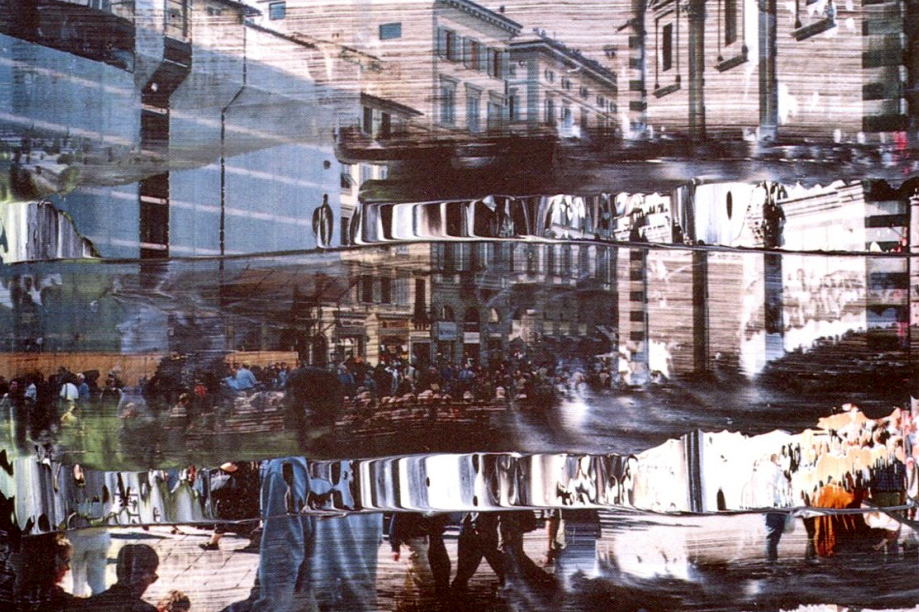
Gerhard Richter, from the Firenze series (detail), 2000
Seven weeks into a global pandemic, cheer is a scarce commodity. Emotions are fraying. Patience is waning. What Emerson celebrated as the independence of solitude has gone from challenging to burdensome to, frankly, irritating. Time is shapeless. (Weekends are meaningless.) And quarantine means navigating days that end, presumably, just where they began. Solo life has become siloed life.
We are mistaken when we compare war with normal life, wrote C.S. Lewis during World War II. Life has never been normal.
Normal, no. But there is hope. The world is starting to open up again, and as we emerge from imposed hibernation, we are grateful for things we will never again take for granted. Air. Food. Hugging our friends. Seeing things anew, even when there isn’t much to see—or much we want to see.
Observing is truth-telling. It’s not a picture postcard, or a gilded lily. And while it may be dominated by the repeat imagery coursing through your feeds—that random mashup of death statistics and cute puppies—that’s just the tip of the iceberg, because observing is not about passive consumption, or about silent spectatorship, or, much as we might need them right now, about cute puppies. Observing is about paying attention and leaning in: to everything you witness, even and especially those unbidden stories, the ones that torpedo into view, insinuating themselves into your consciousness like splinters.
Behold: some splinters.
There is a window in my studio that turns into a Gerhard Richter painting after sundown. The coarse weave of the shade filters out the edges of an otherwise forgettable view and reframes it as pure geometry. Blurred at the edges, it’s quietly captivating, buildings rendered as asymmetrical grids of evanescent light and shadow. Animated by a sea of anonymous inhabitants whose lights might be on or off, the view changes every night.
Sometime during the night, a man screams. The screams turn to loops of plaintive beckoning, a willful call and response that yields no response. Yelling soon becomes a ballad, the same cadences on repeat, words muffled and scarcely cogent. His is a kind of accidental performance art, this man whose voice I’ve come to love, a voice that cracks from the sheer effort of using it so generously. His stage is a parking lot, empty and dark, vast and unpopulated. This man is our local Madwoman of Chaillot, and this is his theatre.
Another parking lot, mid-afternoon. Two people meet for a conversation, standing six feet apart, using the lines framing car spaces to define current distancing conventions. They command the center of that immense grid, facing each other with the formality of an eighteenth-century Baroque dance, a dystopian minuet. But this is the dance, and there is no music. There is no ballroom. There are only these people, masked and distant, together and apart. Shades of Robert Wilson, like a scene cut from Einstein on the Beach.
Guard well your spare moments, wrote Emerson. They are like uncut diamonds.
Solo life is an invitation to pay attention to everything: the screaming in the night, the oddities of the day. These spare moments are where we find them, sometimes—often—where we don’t expect to, or want to. These are the views you may not want, but they’re your views, uncut diamonds waiting only for you to stand still long enough to see them, honor them, and let your imagination to set them free.
As the world opens up, these essays will wind down, as they must. Language can only take us so far, but observing what we can will long continue, as it must. There will always be splinters. There will one day be cheer. For now, pay close attention to all of it, and consider, as you do, these wise words from Walker Evans.
Stare, pry, listen, eavesdrop. Die knowing something. You are not here long.
The Self-Reliance Project is a daily essay about what it means to be a maker during a pandemic. Sign up to get it delivered to your inbox here.

